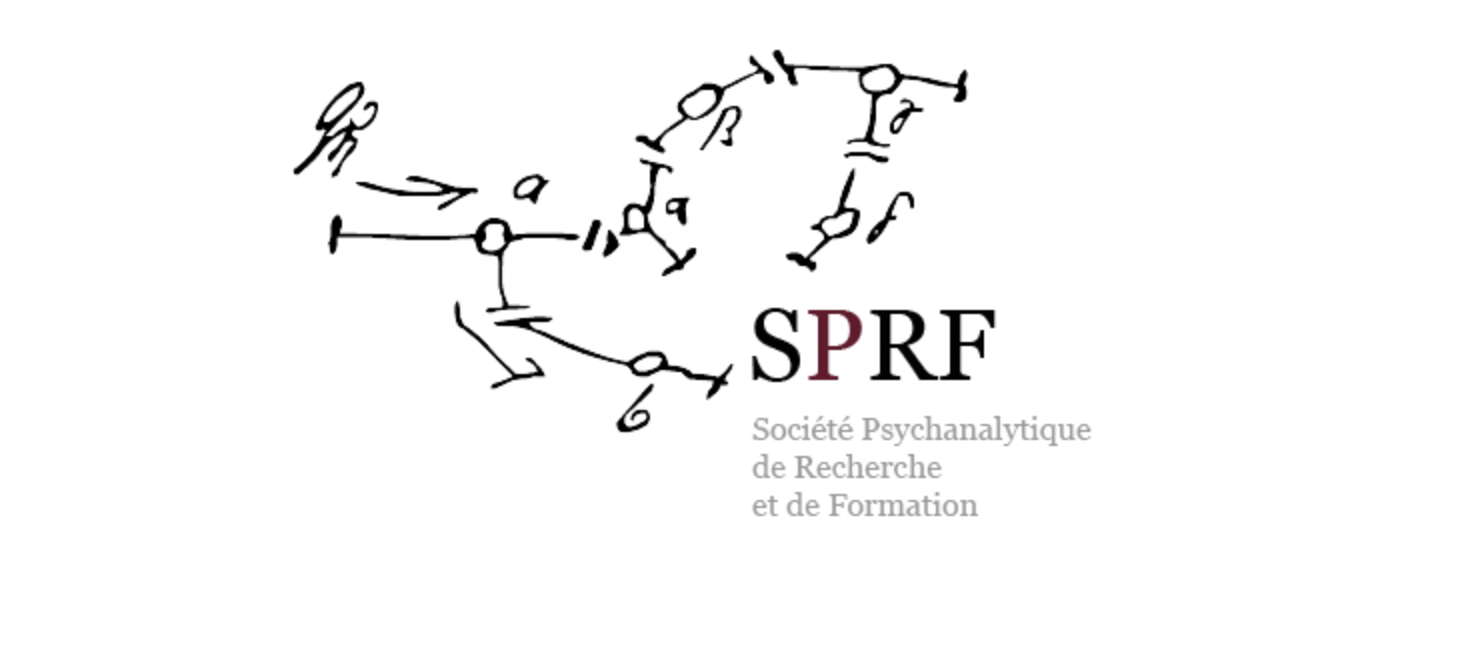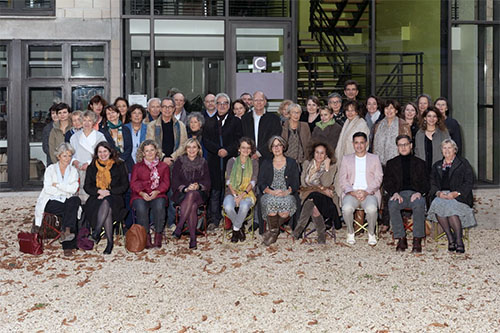
www.sprf.asso.fr
Download the PDF presentation
The SPRF: a young society, a long history
The third French society to be affiliated to the IPA, the SPRF (Société Psychanalytique de Recherche et de Formation, Psychoanalytic Society for Training and Research) has now been a component society of the IPA since the Boston Congress in 2015. It is also a component society of the European Federation of Psychoanalysis. The SPRF was created in 2005 by 17 members of the “Quatrième Groupe” (Fourth Group), who had left due to disagreement regarding training processes. These members came from all age groups, and some were among those present when the Fourth Group was founded. A certain number of candidates who were in supervision with them or who were participating in their working groups decided to follow their lead. Today the SPRF comprises 10 full members, 8 affiliated members and 40 candidates.
The history of the SPRF falls within the long succession of splits which left their mark on the psychoanalytical movement in France, and of which we will now give a brief reminder.
The training model is that of the 'French model', characterized particularly by a strong criticism of the notions of training analysis and of training analyst - having led to their removal - rather than by the number of weekly sessions (at least three).
We can observe that all splits in French societies were generated by problems related to training issues. The first psychoanalytical society in France, the Paris Psychoanalytic Society (SPP), was founded in 1926 by nine members, at the instigation of Marie Bonaparte, who had been analysed by Freud. It was the SPP that trained the first generation of French analysts, as well as France's first noteworthy authors in the field. But a first split occurred in 1953, caused by differences of opinion regarding the question of training, and resulted in the creation of the French Psychoanalytic Society (SFP) by Lagache and Lacan. This society existed until 1963, and trained a new generation of young analysts whose work demonstrated the movement of psychoanalytical ideas in France.
When the SFP expressed its wish to join the IPA, the IPA's refusal to consider Lacan as a training analyst due to his very personal treatment technique led to a new schism in 1964, and to the birth of two new societies: the French Psychoanalytical Association (Association Psychanalytique de France), whose members joined the IPA, and the Freudian School of Paris (Ecole Freudienne de Paris), founded by Lacan and not recognized by the IPA. In 1969, members of the Freudian School led by Piera Aulagnier, François Perrier and Jean-Paul Valabrega left Lacan, citing their nonacceptance of the pass in the training of candidates. They created the Fourth Group, which also remained outside the IPA.
The founding members of the Fourth Group published texts on training which were historical milestones, and whose themes centered essentially around the question of alienation; alienation which is always possible within and through the transference relayed by the group in the institution, as well as through perverted relations between personal analysis and institutional demands.
As a result of a split, but also as an outcome of this long history, the SPRF was founded and joined the IPA. The founding members already had a long experience in training, in particular in their work as supervisors, and had a keen perception of the constant difficulties that training can generate, as well as the permanent critical examination that it demands in order to attempt to avoid falling into the repetition of violence transmitted through generations of analysts. Our society's aim is to offer candidates a course of training that avoids the rigidity of a curriculum on the one hand and the absence of points of reference leading to ambiguity and blurriness. We are aware of the arduousness of the task of evading repetition, no matter how good our intentions may be, but a few points do seem to be essential.
Supervisions: two individual supervisions of classic treatment are mandatory (patient on the couch at least three times per week, plus weekly supervision sessions); however, candidates (Analystes en Formation, according to our terminology) may start a first supervision before having a patient ready to engage in a treatment on the couch. In this way we can work with the candidate on the difficulty of preliminary interviews, refine the guidelines of 'classic' treatment and help elaborate on potential inhibitions. We are particularly attentive to the description and elaboration of counter-transferential elements (including those of the supervisor), while maintaining a clear differentiation between the transference related to working with the supervisor in the framework of the supervision and the transference of a patient with an analyst.
One of our specificities is to ask candidates to participate in at least two clinical seminars during the training period. They consist in monthly meetings of a group of five to eight candidates with two members, usually one full member and one affiliated member: each participant of the seminar, including the two members, present clinical material in turn. The purpose is to freely discuss the material and then to try and formulate how they relate to theoretical questions. Each seminar lasts two years.
Opportunities for exchange between members and candidates are frequent: in addition to the general annual meetings, study groups and theoretical seminars conducted by members taking turns allow fruitful discussions to be established between all.
The Training Committee offers candidates an opportunity to participate in a group meeting, three times a year to informally discuss all subjects pertaining to the training and to institutional life. The Training Committee can also individually see candidates who wish to talk about difficulties that they are facing, in order to try and elaborate on them. The Training Committee has no decision-making power.
The name given to our society, the Psychoanalytical Society for Research and Training (Société Psychanalytique de Recherche et de Formation, SPRF), conveys the importance of research to us all, and research into the training of future analysts in particular. This is why admissions interviews and supervision validations are conducted in turns by all supervising members.
Affiliated members also participate in admissions committee meetings, taking part in discussions but not voting.
Our wish is to try and maintain, as much as we can, an opening in several dimensions: opening of course towards our colleagues both from France and from abroad - the SPRF has participated since its creation in meetings organized in France (CPLF), in Europe (FEP) and in IPA congresses - but also opening towards neighboring fields, from ethnology or sociology to the neurosciences.

Members and candidates of the SPRF, photographed for the occasion, extend their warmest regards.